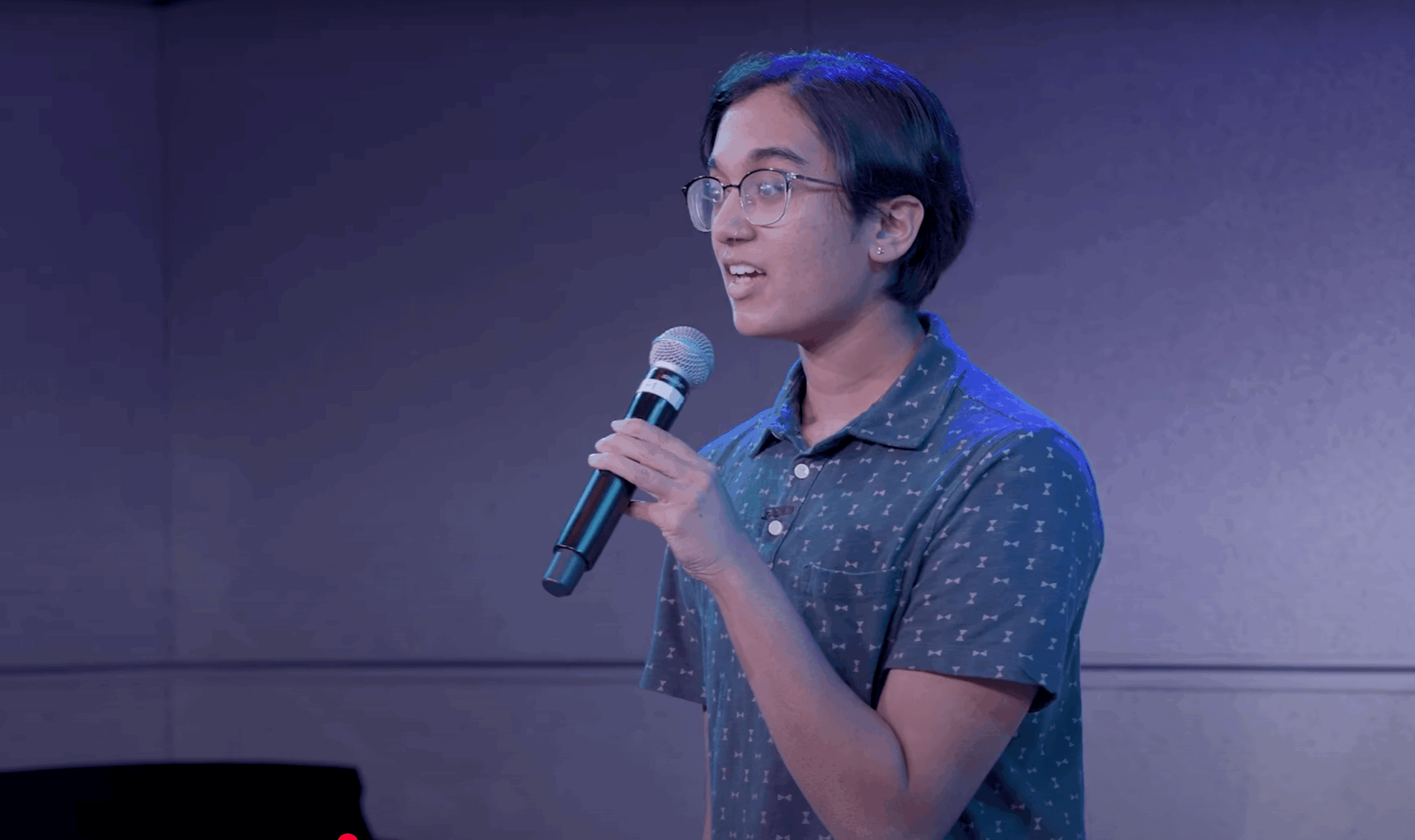We’re excited to introduce you to the always interesting and insightful Nik. We hope you’ll enjoy our conversation with Nik below.
Nik, appreciate you joining us today. Let’s jump back to the first dollar you earned as a creative? What can you share with us about how it happened?
In May of 2023, five months into doing stand-up comedy in Los Angeles, I was booked for a Friday night show at Fourth Wall Comedy Cafe. This was a bringer show, which meant that you had to bring at least three people in order to perform (if you didn’t bring enough people, not only were you not allowed to perform, but the club would be convinced that you had no friends!). Luckily, this night was a packed house with an energetic and responsive crowd, including my new comedy friends I made after starting my first job at a different comedy club, the LA School of Comedy. Although it wasn’t my first bringer show, it was the first show with the potential promise of pay if enough people showed up.
Most of the comics on the lineup were folks I’d never met before, but had seen their names on various open mic lists. Fourth Wall was known for, among other things, having stand-up open mics at (truly) all hours of the day, which was great for someone like me who worked nights and relied on public transportation. Practicing my material in front of a bunch of comics who were also free at 1pm on a Tuesday was certainly a humbling experience, but in the end it worked out in getting me booked at the club.
I had made the regrettable decision of hiking for four hours in Griffith Park directly before the show, so I smelled terrible and had no feeling in my ankles the entire evening. I had worn these sick cargo pants I bought from Ross Dress for Less, but they were so drenched in sweat it was like walking around in a weighted vest. But the cool part about stand-up is that you can acknowledge this kind of stuff and people respond to it well. I remember opening my set with, “Exciting news, I went to a theme park today…the theme was Griffith,” a silly joke I thought of during my hike. I thought it would bomb, but the crowd loved it. That energy from that first joke powered me through one of the most exhilarating seven minutes a nineteen-year-old can experience.
I don’t remember much of the set, but it’s on YouTube somewhere, and it features my friend dropping the phone mid-way through the recording, so not the pinnacle of Hollywood cinema to say the least. After the show, as I was heading out the door, the owner of the club, Joe Manente, threw a few bucks in my hand and then left immediately. It was probably about five dollars, but it was my first time doing stand-up and seeing real money in my hand.
Doing stand-up anywhere is difficult, but with the competition in LA, it’s especially excruciating to get booked anywhere. Open mics in LA usually cost money to perform (i.e. $5 for 5 minutes, $10 for 10 minutes, etc.), which adds up quickly, especially if you’re not making that money back in gigs. Had I not been supported through an arts/entertainment Study Away program through Duke University which supplied me with free housing and a living stipend, this would have been a whole different story. Had I not been working at a comedy club, which not only gave me free stage time to practice my material, but welcomed me into an amazing community of comedians who advocated for my success, I probably wouldn’t have gotten that five dollar bill. Had I not made some dumb word play joke about how people say “laughter is the best medicine” and how I don’t think “Kaiser Joe Manente” (a play on Kaiser Permanente) is a replacement for real doctors, maybe I wouldn’t have gotten noticed at a Fourth Wall open mic.
I’m pretty sure I used that money to get myself a sweet treat post-show. And then it was back to doing mics, and hoping to get booked somewhere. The next time I was booked at Fourth Wall, I couldn’t bring enough people and was removed from the lineup, which just goes to show how volatile these things can be. But at the end of the day, they’re all stories we can laugh about some day.
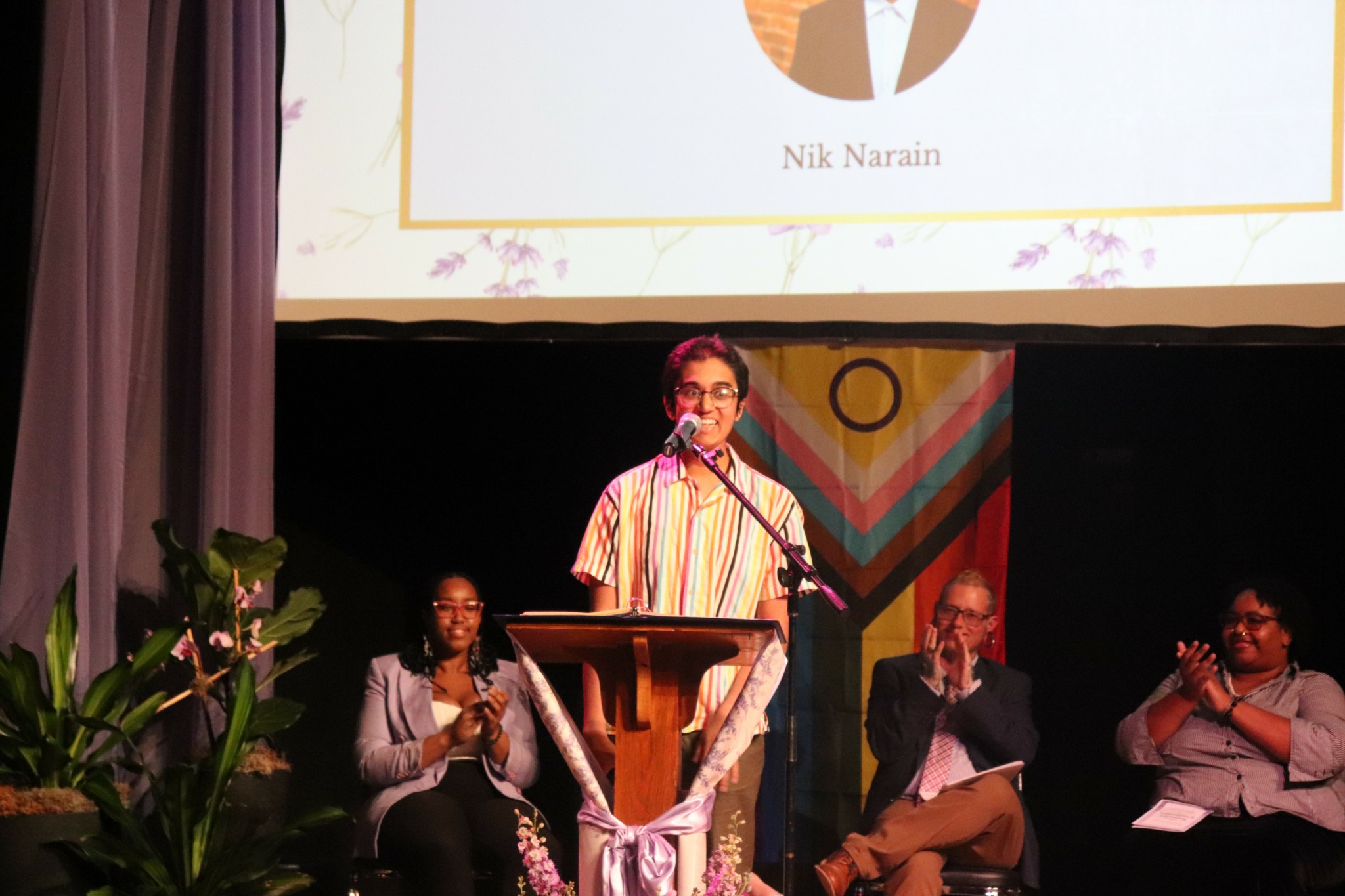
As always, we appreciate you sharing your insights and we’ve got a few more questions for you, but before we get to all of that can you take a minute to introduce yourself and give our readers some of your back background and context?
Hello! My name is Nik Narain (he/they) and I’m a comedian, writer, science communicator, and singer-songwriter based in Durham, NC by way of Illinois and Texas. My work centers around telling engaging and accessible stories about scientific concepts and themes through metaphor, humor, internal/interpersonal conflict, and the realistic portrayal of scientists and scientific research. As many associate their experiences of science education with frustration or tedium, I’m fascinated by how we help others develop a joyful, lifelong relationship with science. I believe science is the ultimate story of who we are and how we got here, and it’s imperative we find new and interesting ways to tell those stories to excite, inform, and entertain. Ultimately, I hope my work can encourage greater understanding, appreciation, and empathy around our bodies, communities, and environment.
I have served as a writer for numerous creative and professional outlets and have written several dramatic writing projects that have been staged in Durham. My first screenplay Physical!, a romantic comedy about queer college physics students, was second-rounded for the Sundance Feature Film Program and received the Duke Reynolds Price Award for Excellence in Dramatic Writing. My second screenplay R.O.F.L., a thriller about a haunted comedy club, was finalisted for the Sundance Cultural Impact Residency. In February, I released my first one-hour comedy special “Rusk,” a culmination of material about physics, psychology, gender transition, and a whole lot more that I’d developed over 2.5 years across three cities: Los Angeles, New York, and Durham. “Rusk” has been performed at various theaters in the NC Triangle, the New York Fringe Festival, the Raleigh Fringe Festival, and the Edinburgh Fringe Festival. This fall, I hope to release my first original song “Supernova” and continue performing around the Triangle.
I’m very fortunate to have come from a family of educators and STEM professionals, which instilled a love for science in me from a young age, specifically neuroscience. In high school and college I worked in four neuroscience labs studying the brain at cellular, cognitive, computational, and policy levels. Over time, I realized that my passion lay not so much in doing science but in sharing it with others, and quickly fell in love with Science Communication. I graduated from Duke in May with degrees in Physics and Visual Media Studies, with a concentration in Cinematic Arts and screenwriting.
I believe both art and science are community practices that must be done with community in mind. My work wouldn’t be possible without the unwavering support of the many queer communities I’ve found at Duke and in Durham, and opportunities to work in LGBTQ+ and mental health advocacy at a local and national scale. Queer people have historically had to resist narratives about our bodies and brains drawn from faulty scientific histories, which instills a strong responsibility in my SciComm practice to center inclusion, visibility, and joy. As a disabled queer and trans person of color, my reality is part science and part a story I’ve had to create for myself, and I hold that proudly in all my work.
I currently live in Durham and combine all my interests working a variety of awesome jobs, including at a local science museum, a comedy theater, an LGBTQ nonprofit, and at my favorite vegan restaurant ever (Pure Soul Durham!). I enjoy going on long walks around town when it isn’t boiling or storming and trying new restaurants, trying to piece together the best version of a creative life that works for me. I’m so honored to be surrounded by an abundance of creative talent and ingenuity around me, which continue to inspire me to take risks and try new things. I’m not entirely sure where all of this is going, but I can confidently say it’s been going very well so far.
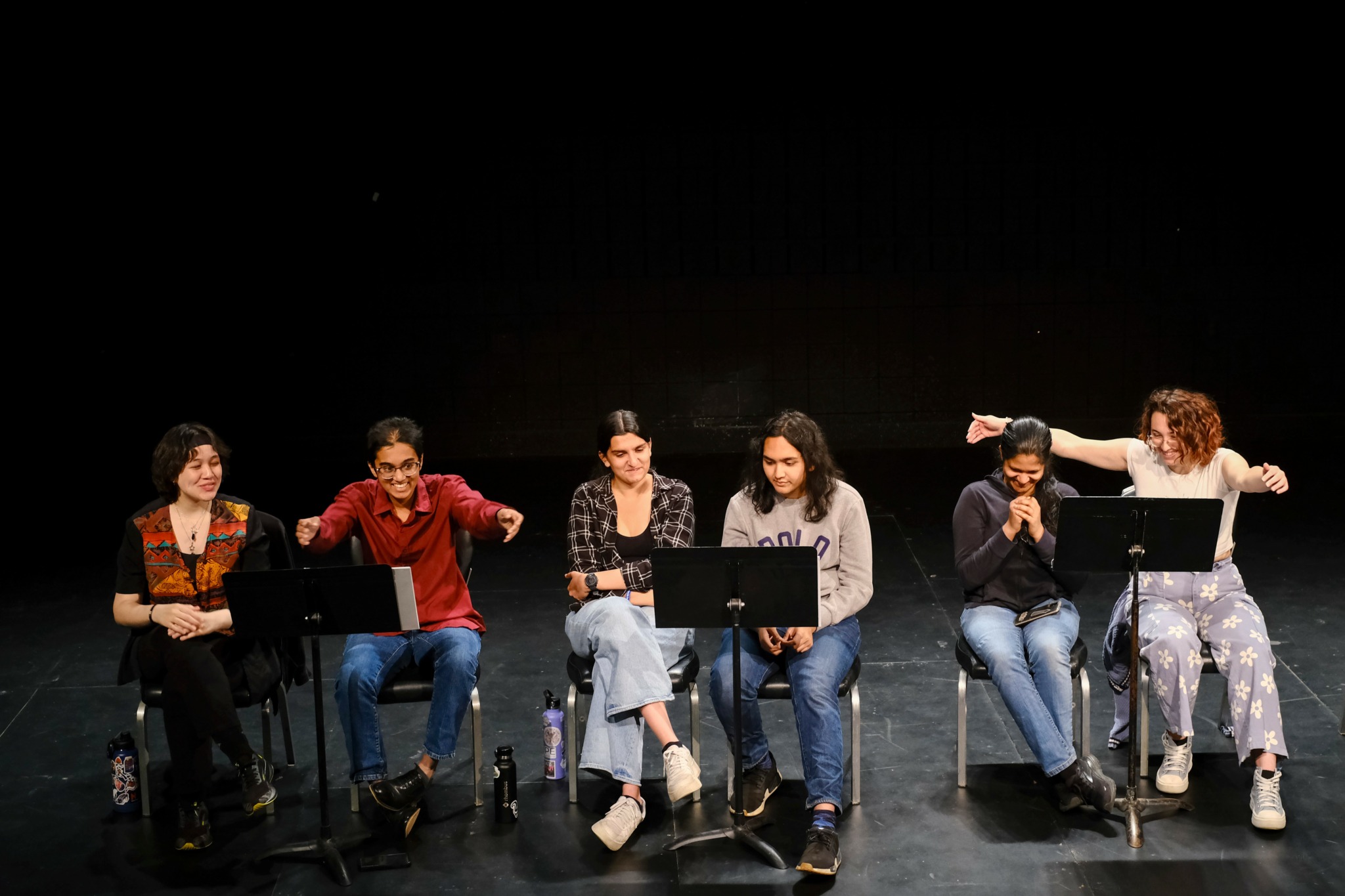
How about pivoting – can you share the story of a time you’ve had to pivot?
The summer of 2023, I started developing problems with my voice. It was the combination of recovering from a viral illness, newly developed environmental allergies, and immense stress that made the one organ I could depend on suddenly non-functional. I was diagnosed with what’s called Muscle Tension Dysphonia (MTD), which is really a diagnosis doctors give you when you say that your voice hurts and they can’t figure out why.
If I could describe it, MTD kind of feels like this suffocating tightness around your throat. Luckily, your vocal cords aren’t damaged, but the muscles around them become so damaged that your voice just feels stuck. One moment you can talk with your friends for hours; the next you have to cancel plans. One moment you can do a 10-minute stand-up set; the next you’re standing on that stage and no sound comes out. Around this time, I was also in the process of realizing I’m trans, and reconciling with multiple years of gender dysphoria that had manifested in various mental health diagnoses and unhealthy coping skills. As anti-trans humor increasingly grew in popularity in mainstream comedy, the whole world of stand-up had left me fearful and disillusioned. And with worsening voice issues, I’d thought for a while that my only choice was to quit, or at least take a break for a while.
All of this unexpectedly led me to…becoming a drag king. One day that fall, I woke up and said “yeah, I just…have to do this.” Frankly, I knew nothing about drag and had only ever seen one drag show in my life (albeit, as a straight woman). I’d never watched drag race and didn’t know any drag artists. But it soon became my obsession as I let my voice and my mind heal.
Drag was compelling to me for a variety of reasons: 1) the gender euphoria of getting to present more masculine, and take on a persona that had felt so off-limits; 2) the ability to explore myself through fashion and makeup, which was really intimidating as someone who historically made fun of for my utter lack of a fashion sense (which was deserved); 3) the ability to rekindle my love for visual art, which I let fall by the wayside after starting college; and 4) as a science communicator, I was fascinated by the ways drag can be used a medium for accessible and engaging science education. As someone who has always relied on my voice and words as my primary mode of storytelling, how can I use my clothes, body, and movement to convey those same messages?
It’s been a challenging and fun journey of ups and downs, of failed numbers, harsh criticisms, and awkward Uber rides. As my voice is in a much healthier place now, I’ve gotten to tell a lot of jokes about my drag fails, which people apparently love hearing about. If I had never injured my voice, I don’t think I would have ever found drag or grown to love it as much as I have. I would have never found such an incredible community of queer and trans performing artists in the NC Triangle. Although I’m still very (very!) much an amateur, I definitely feel like I’ve grown more confident as a drag artist and in myself. My stand-up, which used to be self-deprecating to the point of audience discomfort, has gradually veered away from that comedic style towards one that leans into my confidence and strengths over my weaknesses.
Since graduating college, I’ve thought a lot about defining “success” as an artist, and I’ve realized for me success lies in versatility and longevity. I’ve learned that I can never be an artist centers on a single practice, not only because that doesn’t fulfill me personally, but because my body can’t handle it without pain. For me, a happy creative life is one where I can balance space for all my creative passions, so I can engage with them for as long as I can. Being a comedian has made me a better comedy screenwriter, in the same way making science-y clothes pieces has made me a better science communicator. For me, it all fits.
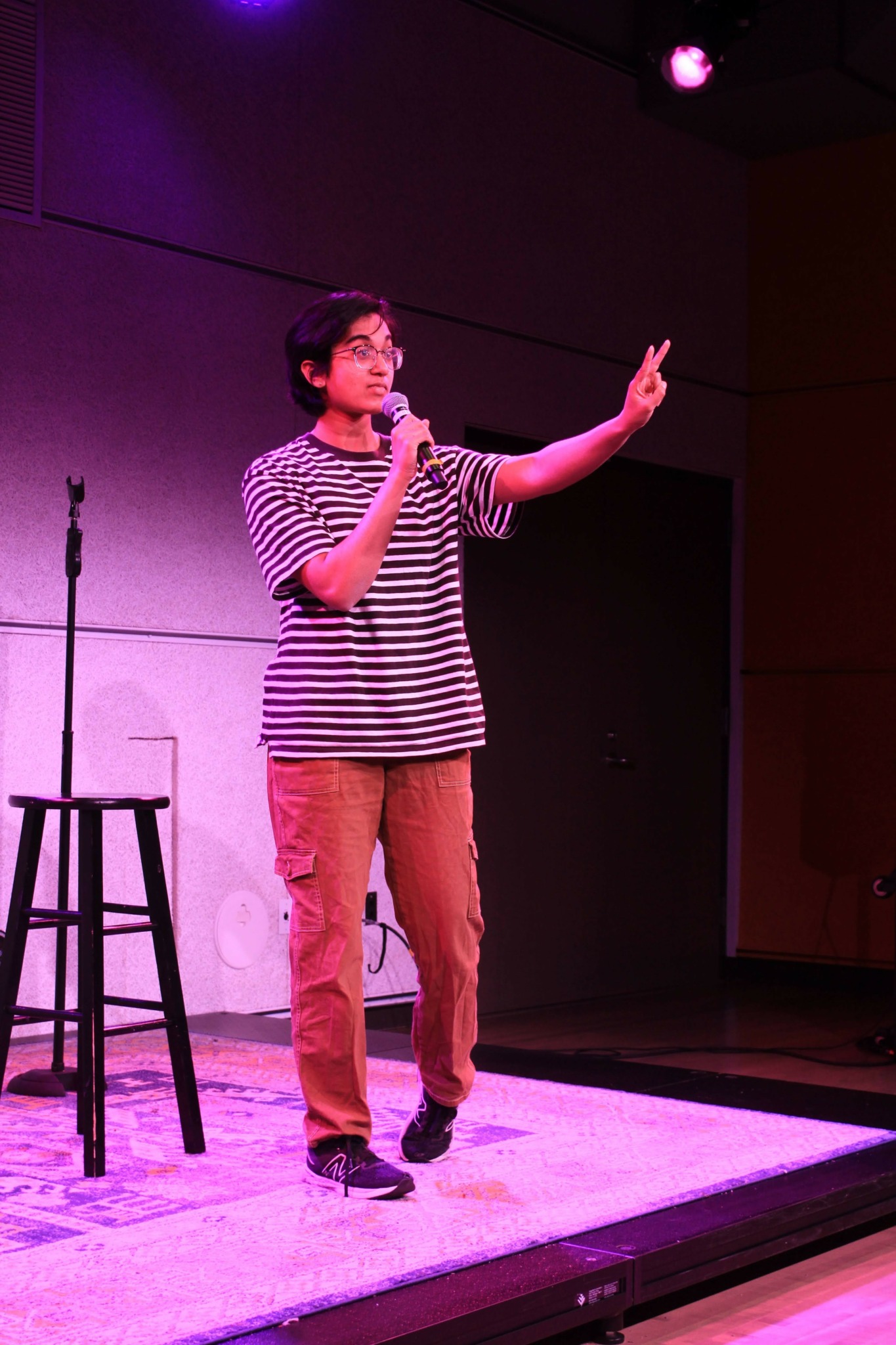
What’s the most rewarding aspect of being a creative in your experience?
I love the way any piece of art sparks conversation and brings people together. Initiating that, facilitating that, participating in that – I’m obsessed with all of it.
I’m someone who processes things by talking it out, both creatively and in my personal life. When I’m thinking of a new story idea, the first thing I’ll do is talk to as many people as I can about it, and see what discourse emerges. Sometimes it’ll just feel like pitching a story and that’s it, while other times we’ll be chatting for hours about deep topics, or I’ll get to learn something new about a friend – or something new about myself. In the same way, I love reading other’s people work and talking through pitches and story ideas.
I remember when I did “Rusk” the first time back in February. My marketing approach was very all over the place – I just kind of emailed everyone I knew and hoped for the best. It was an eclectic crowd of comedians, musicians, drag artists, activists, scientists, theatre artists, and engineers, about seventy in one crowded room on Duke’s campus. To me, it was not only an accomplishment to finish and record a stand-up special, but to bring such a diverse group of people together through my art, and see what possibilities emerge from creating that site of connection. I can never be certain if I gave a “good” or “bad” performance with any artistic work, but knowing that I can bring people together and spread joy and connection, even if it’s just for an hour, is the best part about all of this.
Contact Info:
- Website: https://niknarain.weebly.com
- Instagram: https://www.instagram.com/nik.narain/?hl=en
- Facebook: https://www.facebook.com/niknarain1/
- Linkedin: https://www.linkedin.com/in/monika-narain
- Youtube: https://www.youtube.com/@niknarain
- Other: TikTok – https://www.tiktok.com/@nik.n.creates
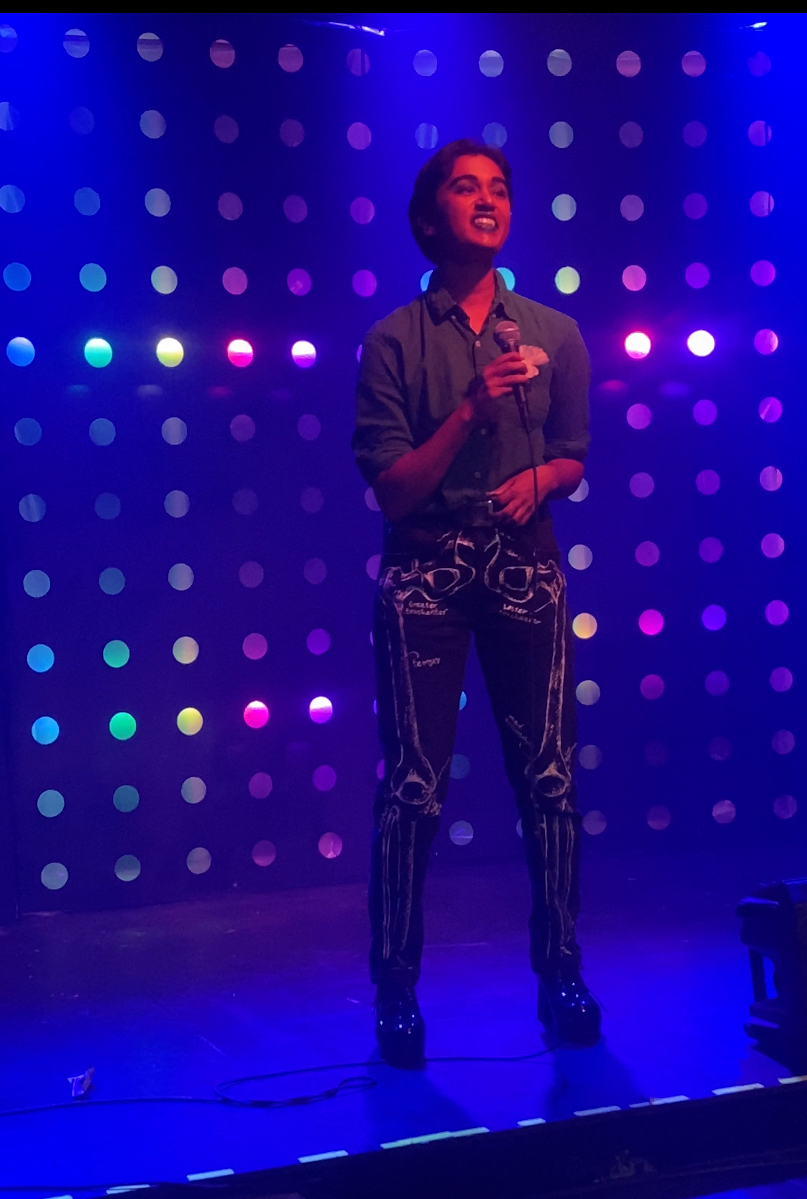
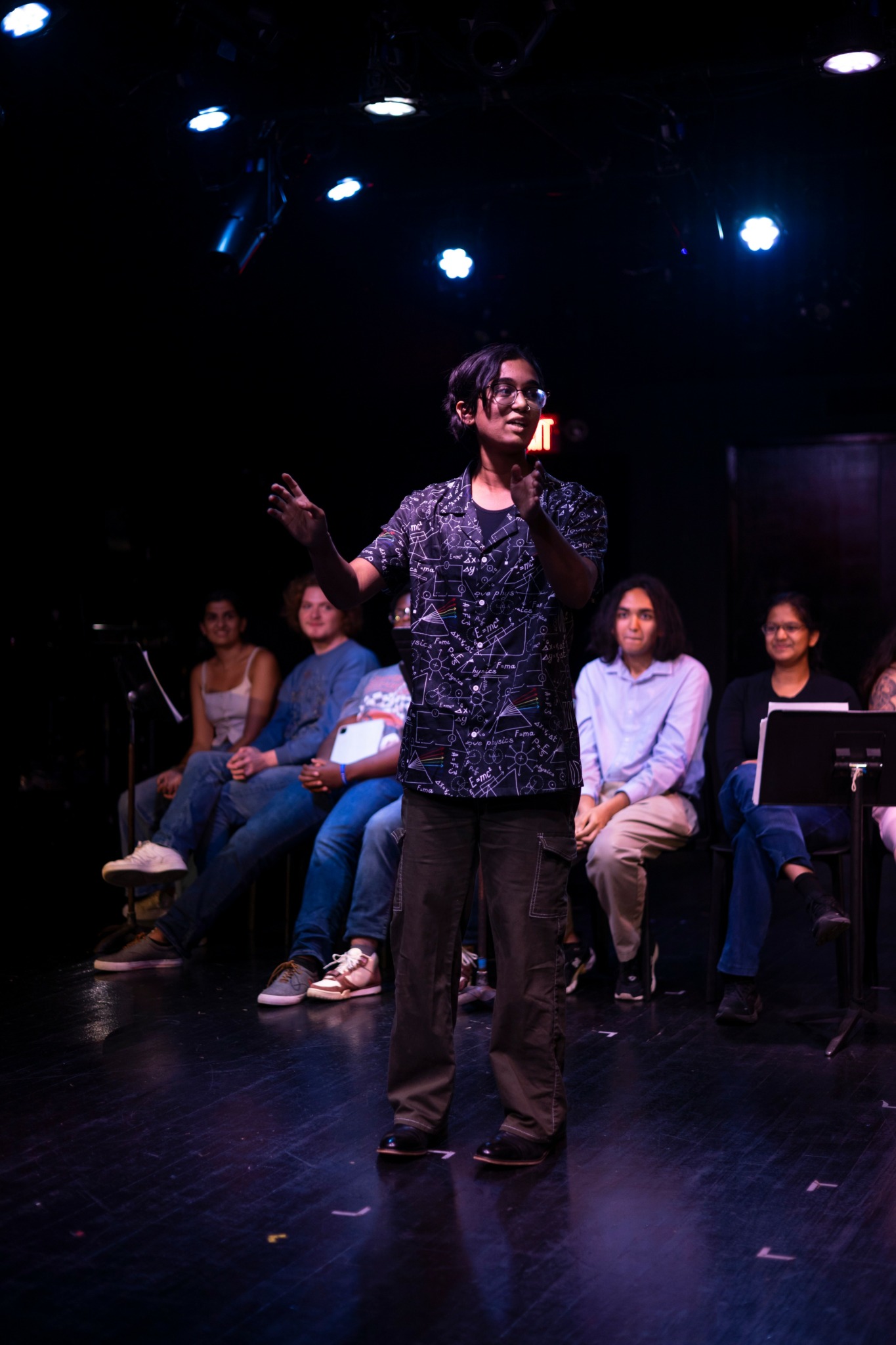
Image Credits
(1) Duke Center for Sexual and Gender Diversity
(2) by Miranda Zhong
(3) by Duke University Stand-up Troupe
(5) by Chris Vilorio


